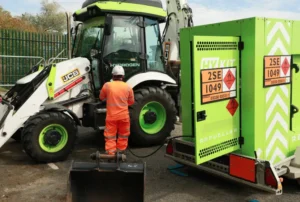Tees Valley will host a new £20 million competition, where successful bidders will push the boundaries of hydrogen to see how it can be used to create a cleaner and more efficient transport sector.
The Government says hydrogen, which produces no carbon emissions when used as a fuel, has an “abundance of potential yet to be unlocked”. The Hydrogen Transport Hub competition will encourage growth in this vital sector.
As part of the competition, run by Innovate UK, businesses and research groups will collaborate to discover how hydrogen can be used as a reliable fuel source. From lowering carbon emissions on grocery deliveries to making the air in cities cleaner, today’s investment opens up the possibilities of hydrogen to revolutionise how people live and breathe across the country.
The competition will address challenges such as refuelling on a large scale, ensuring buses and coaches can use hydrogen in public transport ecosystems and how to make the supply chain greener with hydrogen-fuelled HGVs.
As the technologies develop, the research from this competition will help bring about the large-scale production of low-carbon hydrogen, which could also reduce the nation’s reliance on imported fossil fuels.
There will also be an additional £300,000 put forward to support upskilling the local workforce and foster a specialised skills base and pipeline of talent, further cementing Tees Valley’s status as the home of hydrogen. This will help grow the UK economy with a transport system that is resilient to global energy prices, environmentally friendly and could see the creation of hundreds of skilled jobs.
Transport Secretary Anne-Marie Trevelyan said: “Climate change is one of the biggest challenges this generation faces, and with transport contributing 24% to the UK’s CO2 levels, we are working hard to change things now and for the future.
“Tees Valley continues to be the beacon for hydrogen technologies and will be further supported by £20 million going to the best and the brightest ideas that will create a world-leading industry with more skilled jobs in the heart of the north of England.”
(Picture – Yay Images)
























